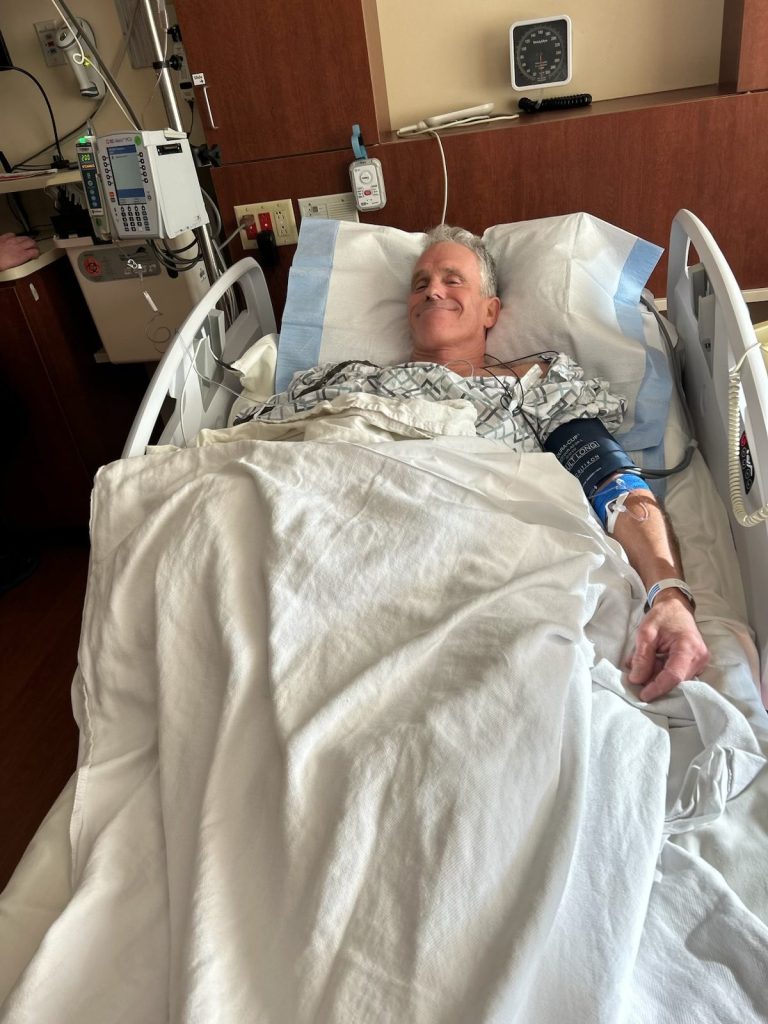By Amanda Tripp, ThedaCare Patient Access Manager
When you become a health care proxy, you take on an important responsibility to stay up to date on your loved one’s health care.
Amanda Tripp, ThedaCare Patient Access Manager
When you sign up to be someone’s health care proxy, you’re stepping up to help that person navigate his or her own health care.
Some examples of health care proxy arrangements might be:
A parent will have electronic access to set appointments and communicate with providers about a minor child’s care.
An adult child will have permission to access records and communicate about an aging parent’s care.
A spouse of someone experiencing early-stage dementia can facilitate his or her health care as primary caregiver.
Someone who offers to be a health care proxy does not drive all the health care decisions for the person they’re supporting. In many cases, adult children simply help their parents navigate their MyThedaCare online health care portal, have access to their medical records, and accompany them to appointments to be a second set of ears.
The steps to become a documented proxy for another ThedaCare patient are explained here. Also, please note:
Health care proxies should use MyThedaCare to fulfill their role. If your loved one (the patient in need of a proxy) does not yet have a MyThedaCareaccount, you can establish one for him or her with certain information. Click here to get started.
A proxy and the patient must each have their own separate MyThedaCare accounts. If you (the future proxy) are not a ThedaCare patient, you can still establish your own account for administrative reasons so you can “proxy in” to see your loved one’s account. (For example, this works well if you live out of state and still want to help your mother in Wisconsin.)
You’re a Health Care Proxy. Now What?
The most important point to remember as a health care proxy is: When you are logged in to your own MyThedaCare account and want to message a provider on behalf of your loved one, you must “proxy in” to that person’s account and send the message from their account. If you message a provider from your own account about the other person, it becomes a medical privacy issue and can cause a significant delay in accomplishing the task at hand.
When you become a health care proxy, you take on an important responsibility to stay up to date on your loved one’s health care. Upon receiving a message from a provider’s care team, please first discuss next steps with your loved one and then respond in a timely manner.
It’s important for a patient and their proxy to maintain helpful and respectful communication with one another. Until or unless a Power of Attorney for Health Care (POA-HC) is activated for someone over age 18, a person maintains the right to make their own health care decisions. (See below for more about POA-HC.) A proxy has sole access to what results from these decisions, can help a person determine next steps, and agrees to help facilitate the receipt of care.
As a proxy, you will most likely assist your loved one with online scheduling and electronic provider messaging. This saves time because a person who might normally use the telephone for these tasks no longer has to navigate the phone system or wait on hold. You can be confident that messages and requests are properly communicated, recorded, and shared with you — and this is a great help to your loved one’s care team as well.
Proxy Versus POA-HC
For the purposes of this article, a health care proxy document allows a second person (“the proxy”) to access certain confidential health care information of another person (“the patient”). It’s different from a POA- HC, an equally important document that allows someone to name a health care agent who will speak for their express wishes in case they become unable to speak for themselves due to severe illness or injury.
Everyone should have a POA-HC upon turning age 18 in Wisconsin, as Wisconsin is nota next-of-kin state where family members automatically have the right to make health care decisions for an incapacitated person.
A health care proxy and a POA-HC can be the same person or different people. For example, a local child may help an aging parent with appointments as a proxy, but a sibling who lives out of state may be the POA-HC.
Ripple by ThedaCare Health Circle
In addition to the tools available through MyThedaCare, Ripple by ThedaCare offers a Health Circle resource. It provides a secure way to share health information.
If you help manage someone’s health or there’s anyone who helps with yours, it’s an easy way to keep everyone in the loop. Each Health Circle member sets permissions for what and how much to share, and nothing is ever sent without permission.
To add people to your Health Circle, log in to your account on your Ripple app or at ripple.thedacare.org. Select Health Circle, and from there you can add individuals and set permissions.
Explore Proxy Tools in MyThedaCare
Explore the proxy tools available through MyThedaCare by selecting Account Settings/Proxy Access to Other People or Request Proxy Access to a Minor.
The post How to Become a Health Care Proxy appeared first on ThedaCare.

Leave A Comment